Homelessness increasing in the Wide Bay
Is it the State Government that needs to fix the housing crisis, or is it the feds? Depending on who you ask, it could even be churches or the private sector. But while the number of homeless grows daily, is anyone in power truly helping the Wide Bay’s homeless?
Bundaberg
Don't miss out on the headlines from Bundaberg. Followed categories will be added to My News.
Politicians in Bundaberg argue it’ll take a combined approach to solving the housing crisis, but so far, no one is convening such a move.
In the Fraser Coast and Gympie, the need for housing and the pain of the rental squeeze is being felt worse than ever before.
We dive back into the housing crisis to see what the issues are, and what the solutions might be.
Bundaberg Mayor calls for state, feds and churches to fix ‘problem’
Just last month, the Bundaberg NewsMail reported on the shocking state of homelessness in the Bundaberg region when local couple Ron Hughes and Julieann Tucker shared their harrowing story of being forced to live on the street after a lifetime of renting.
Since then, Bundaberg Regional Council has reportedly been moving people on from the park where Ron and Julieann lived.
When the NewsMail spoke to homeless locals, many said their biggest struggle after being forced on to the street was that they were often told to move on from public areas, leaving them with literally nowhere to go.
At the time, the council did not comment when asked if such a thing was happening, or where exactly the homeless were expected to go.
A public camping area isn’t a solution, according to Bundaberg Mayor Jack Dempsey.
He has continued to call for a national housing summit instead.
“If one council makes changes to a planning scheme (which takes a long time) or regulates short-stay accommodation, they risk shifting the problem to another area,” he said.
“These things should be determined at a state level.
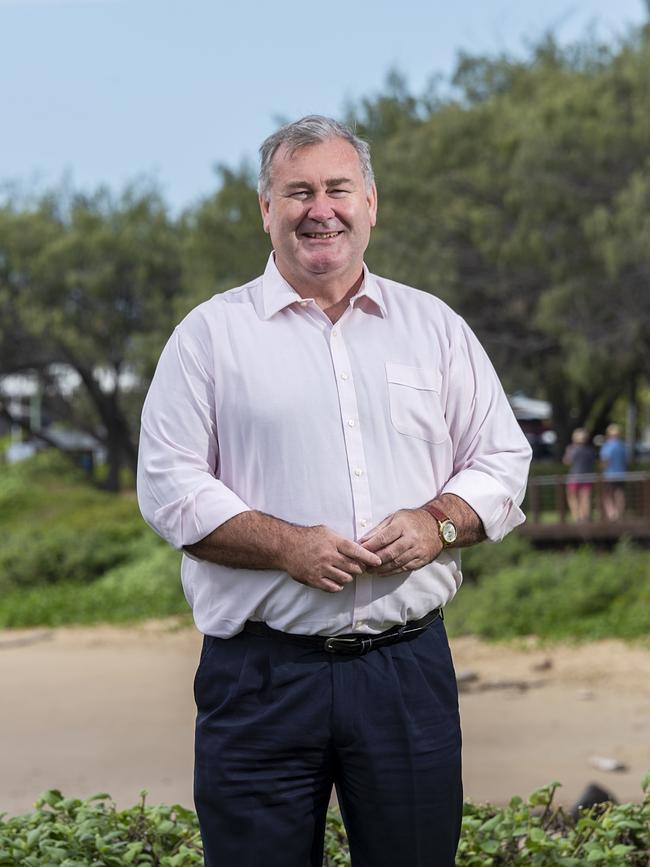
“If one council opens a recreation reserve for camping, people might come from everywhere. Who pays for it and who accepts liability?”
Mr Dempsey said there were too many layers to “this problem”, with so many stakeholders that “everybody should be called together and locked in a room until there’s an agreed pathway”.
“Local government stands ready, willing and able to play a part but can’t act in isolation,” he said.
“Again, these things should be part of a national or state approach.”
Mr Dempsey said it wasn’t helpful for politicians to blame other levels of government, and that there was a need for short-term relief.
“I don’t think it’s helpful when politicians snipe from the sidelines and blame other levels of government,” he said.
“Churches and welfare agencies have a role to play, and the Federal Government should assist with funding,” he said.
“Rental subsidies should be offered, tenancy laws should be reviewed, and more social housing is desperately needed.”
Mr Dempsey said any measures to use tourism facilities to help the homeless could hurt tourism.
“Do we turn holiday parks into temporary camps for working families who can’t get rental accommodation?” he said.
“That’s an idea that could be considered but there would be consequences for the tourism industry, and issues around management, cost and liability need to be considered at a state or national level.
“The private sector should be encouraged to get on with building approved developments and innovation should be incentivised, eg mobile homes.
“Bundaberg Regional Council has issued development approvals for hundreds of dwellings over the past few years which haven’t been constructed because the industry has been smashed with rising costs and shortages of materials and labour.
“Addressing these challenges requires a state and national approach.
“I’ll say it again because it’s common sense … the Federal Government should convene a national housing summit and reach consensus with the states and all stakeholders on a way forward.”
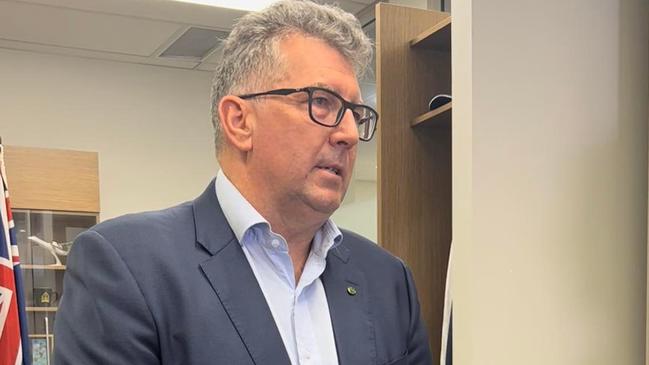
Hinkler MP raises question of state spending
Member for Hinkler Keith Pitt outlined that the Federal Government provided funding to the state, but questioned if it had been used as well as possible.
“There is a shortage of available and affordable housing in our region and right across the country. Rental vacancy rates are at record lows and I know people are doing it tough,” he said.
“It will take a co-ordinated approach by all three levels of government to come up with a tangible solution to help people in our community who are homeless.
“In Queensland there are 50,000 people on the public housing waiting list which shows the Palaszczuk Government is failing to manage social housing.
“Under the National Housing and Homelessness Agreement, the Federal Government provided $326.6 million in 2020-21, including $32.9 million in dedicated homelessness funding to the Queensland State Labor Government. So the question that needs to be asked is: what did the State Government do with this funding and how much of that funding was directed to this region?”
“Around $5 billion will be spent on Commonwealth Rent Assistance this financial year and thousands of Queenslanders were helped into their own home through low deposit home loan programs introduced by the Coalition Government.
“The Albanese Government is talking about bringing overseas workers in to fill gaps in various industries, yet people can’t even relocate to our region to take up work. The Labor Government needs to explain to Australians how they are going to house this increase in immigration.”
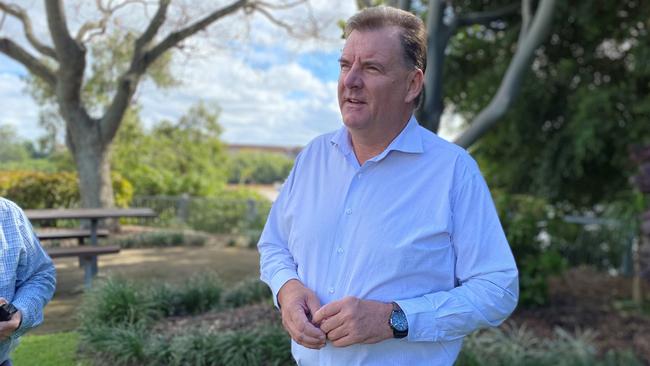
‘Government has created crisis’: Bennett
“Homelessness does not discriminate and the situation in Bundaberg and the Burnett is dire,” says Burnett MP Stephen Bennett.
“Emergency accommodation is full, there is no more social housing available, and the rental crisis is still at an all-time high here.”
Mr Bennett crunched the numbers as he laid blame at the state.
“In June 2021, there were almost 600 people in the Bundaberg and Burnett electorates on the very high need waitlist for housing according to the latest public data,” he said.
“People in Bundaberg and the Burnett are sick and tired of being told by Labor members and ministers ‘all is fine, just trust us’.
“The facts remain; doing the same failed thing repeatedly for the last seven years has resulted in the government creating a crisis of their own making.
“We now find out that in the middle of a housing crisis the Palaszczuk Government sold off homes and blocks of land.
“They chose greed over Queenslanders by selling off 295 homes and 67 empty blocks of land in the 18 months to June this year.”
Mr Bennett called for the government to take responsibility.
“The minister continues to fail the most vulnerable Queenslanders who desperately need a roof over their head,” he said.
“It’s time to take responsibility for mistakes and failings, Queenslanders deserve better.”
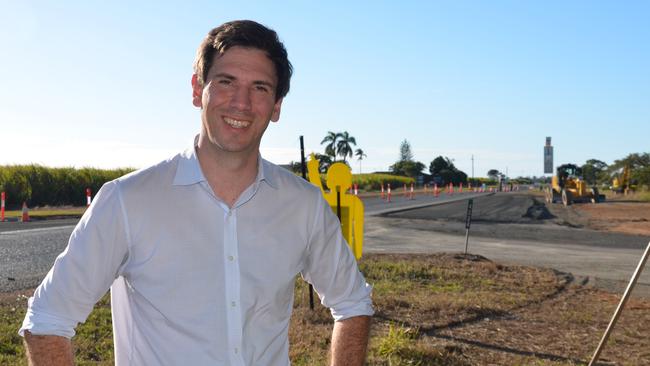
‘Private sector’ needs community spirit, says Smith
Bundaberg MP Tom Smith lashed out at the idea of “political back and forth”, saying it was “poor form” for any elected representative or media organisation to portray people’s hardships as such.
“We have community members facing the challenges brought on by a global pandemic that has pulled the financial rug out from middle income Australia,” he said.
“These people don’t need hyper-politicised comments and articles, they need homes.”
“As a State Government we are investing a record amount into providing more social and affordable housing; however, the new challenge that the country is facing comes from within the private market. Owner-occupier purchases of long-term rental properties, the rise in market price, and the consistent increases in rent, all of which rest within the private market, are contributing factors to the challenges being faced.
“The market needs to see private development and investment return for middle income Australia. All levels of Government need to play a role in facilitating opportunities and partnerships with the private sector, but the private sector must also be willing to reassess its profit margins in the spirit of community and answering the call for those new vulnerable Australians.”
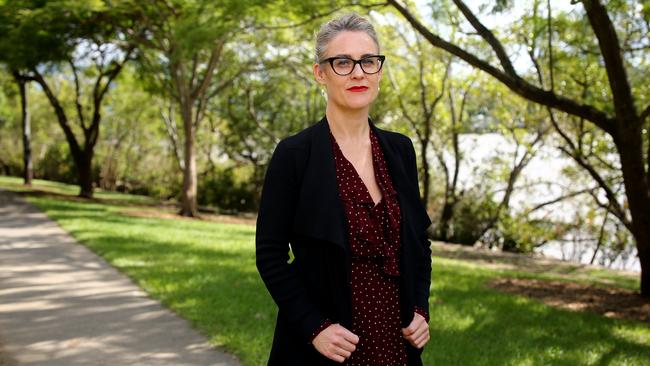
Bundaberg and Fraser Coast residents can’t wait: QCOSS
The Queensland Council of Social Service revealed shocking figures relating to homelessness on the Fraser Coast.
The organisation said there were 1567 people who‘d presented to Specialist Homeless Services and that of those people, 674 were children or teens.
It comes amid the news the Fraser Coast is grappling with a 0.5 per cent rental vacancy rate.
There were 874 applications on the social housing register on June 30 last year, up from 536 in 2017.
There are 1583 people on the waiting list, up from 1069 in 2017.
Highlighting the need for immediate relief, the facts reveal that people are waiting 29.6 months on the social housing register for a home.
The wait is around the same in Bundaberg, where the rental vacancy is even tighter at 0.4 per cent.
The number of applications on the social housing register have tripled in just four years, jumping from 259 applications in 2017 to 751 in 2021.
In Bundaberg, 494 people presented to Specialist Homeless Services, with 198 being children or teens.
“Thousands of people in the Bundaberg and Fraser Coast area presented to Specialist Homelessness Services for help over one year, and the housing crisis has escalated since then,” QCOSS CEO Aimee McVeigh said.
“There are also nearly 3000 Bundaberg and Fraser Coast residents on the state’s social housing register, with people waiting about two and a half years on the Fraser Coast, and about two years in Bundaberg, for a safe, secure roof over the head.”
Ms McVeigh said homelessness did not discriminate.
“These are families, working couples, and vulnerable Queenslanders, sleeping in tents and motels, on couches and on river banks, because there’s nowhere else to go in this crisis,” she said.
“Fraser Coast and Bundaberg residents cannot afford to wait for the wheels of governments to turn – they need short, medium and long-term solutions to help secure a safe roof over their heads.”
QCOSS is calling on the government to extend the Rental Affordability Scheme.
The scheme was designed to offer incentives to approved providers of affordable homes, for up to 10 years, so those homes could be offered below market rate.
NRAS (National Rental Affordability Scheme)
According to QCOSS, many vulnerable people are facing enormous rent increases as the Federal Government subsidy is phased out.
The NRAS will end for more than 50 Bundaberg properties this year, leaving residents to pay higher rents or face homelessness.
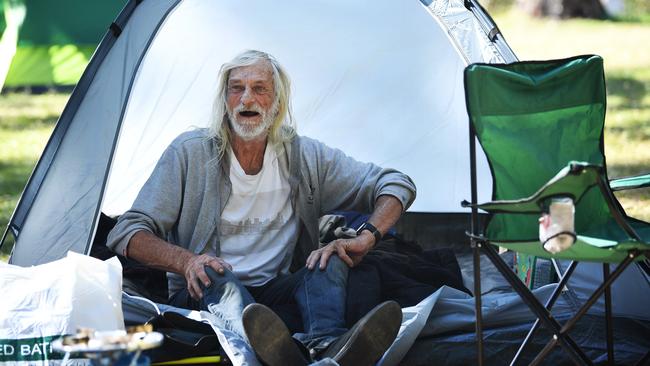
Desperate Gympie locals left with little hope
Gympie’s housing crisis has reached an unprecedented and heartbreaking level, with about 70 residents per month seeking help for homelessness at just one service, and domestic violence victims trapped with nowhere to go.
Many people are facing homelessness for the first time in the area, as some residents leave due to a rise in eviction notices and soaring rents, community services say.
The region’s housing shortage, domestic violence, mental health issues, and substance abuse, all exacerbated by flooding, are some of the key issues being dealt with by local community services and discussed at a recent homelessness town hall.
Community Action Inc operations manager Andrea Matthews said while the region’s residents were resilient and notorious for helping each other in adversity, some had been hit by flooding up to five times this year, and the devastating impacts had been felt by all.
“The housing situation in Gympie is critical,” Mrs Matthews said.
“Our services on average are seeing over 70 people per month who are presenting as homeless.”
Over just 12 months, the service has provided more than 6000 ‘bed-nights’ for domestic violence crisis accommodation and more than 4000 nights of youth crisis accommodation.
They’ve helped more than 100 residents waive about $250,000 in debts, provided support for hundreds of children and migrants, and helped with about 150 tenancies.
Mrs Matthews said like other services in the area, they faced unprecedented demand.
“I think it is a colliding of issues including natural disasters, the Covid-19 pandemic, the rising cost of living, housing stress, job loss, reduced recreational and social activities,” she said.
“The toughest situations our services and clients face, on the whole, would be homelessness. We are seeing huge numbers of people needing housing, and many who have never experienced this before. We are seeing people living in tents, people overcrowding tenancies, women and children remaining in homes where they are not safe, substandard and makeshift housing, squatting, sleeping rough and couch surfing.
“We need more affordable housing options, the extension of National Affordability Rental Scheme, and increased funding for existing services.”
Ms McVeigh said Gympie’s housing crisis was at an unacceptable level.
“Services are telling us that a rising number of long-term residents are being forced to leave the area due to eviction notices and soaring rents,” she said.
“The housing crisis, which has been exacerbated by the floods, needs immediate and increased attention.
“Residents across the region, who’ve had to deal with the devastating impact of the floods, need short-term, medium-term and long-term solutions from all levels of government.”
She said people looking to help could donate to Community Action Inc on their website, and join QCOSS’s Town of Nowhere campaign, in which services across the state were calling for more social housing.
Statewide, there are more than 50,000 people waiting on the state’s social housing register for a home, almost the same size as Gympie’s population.




